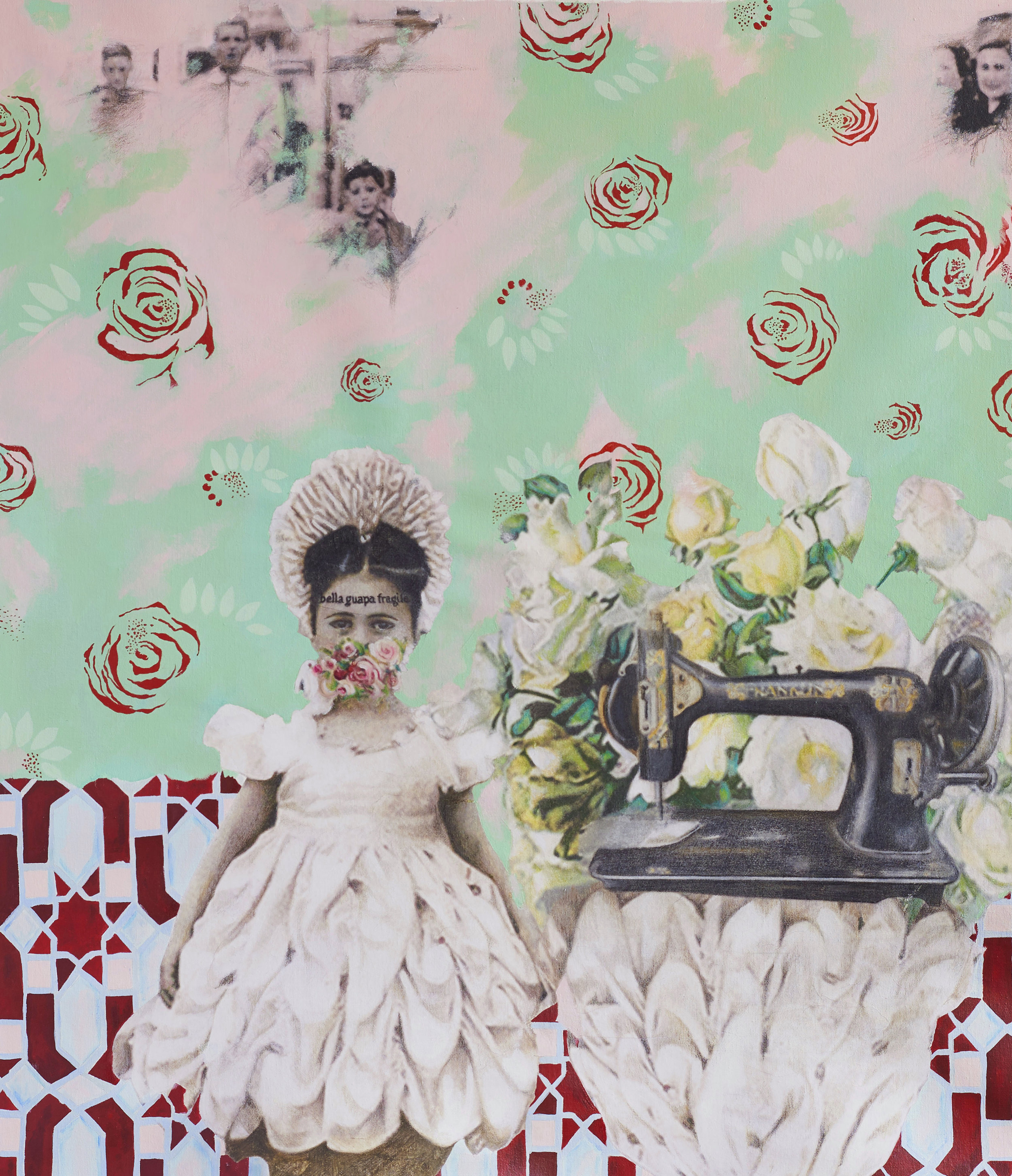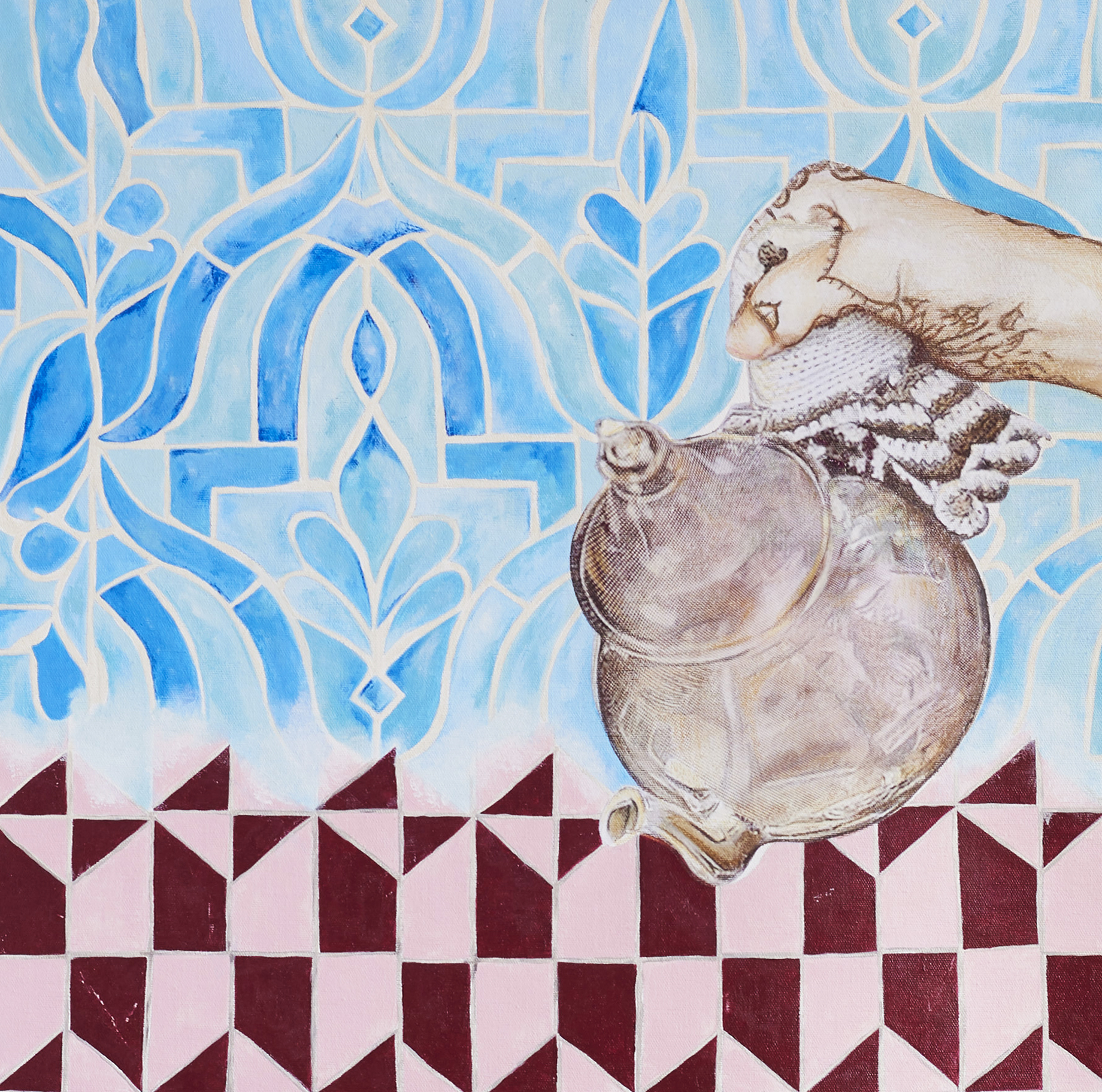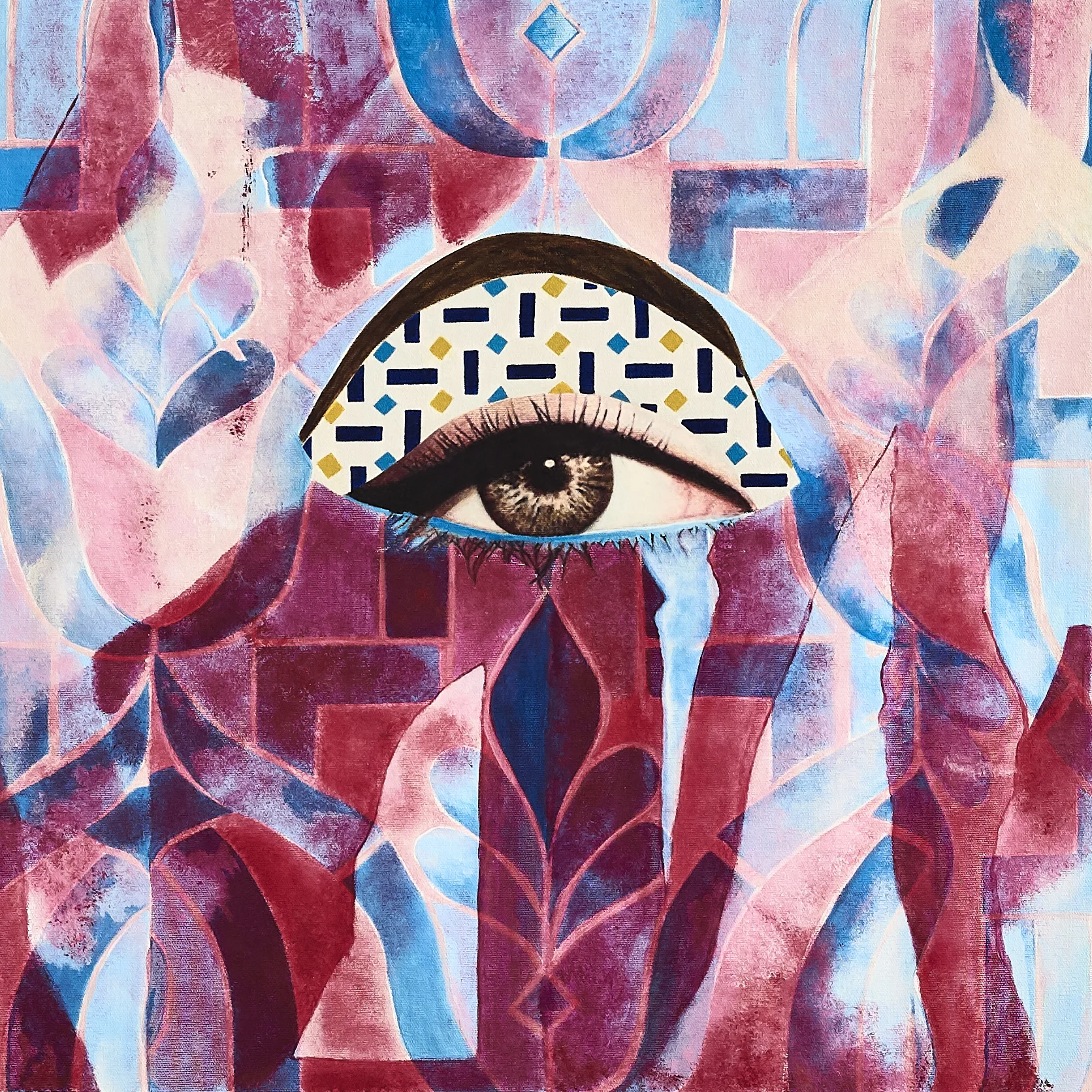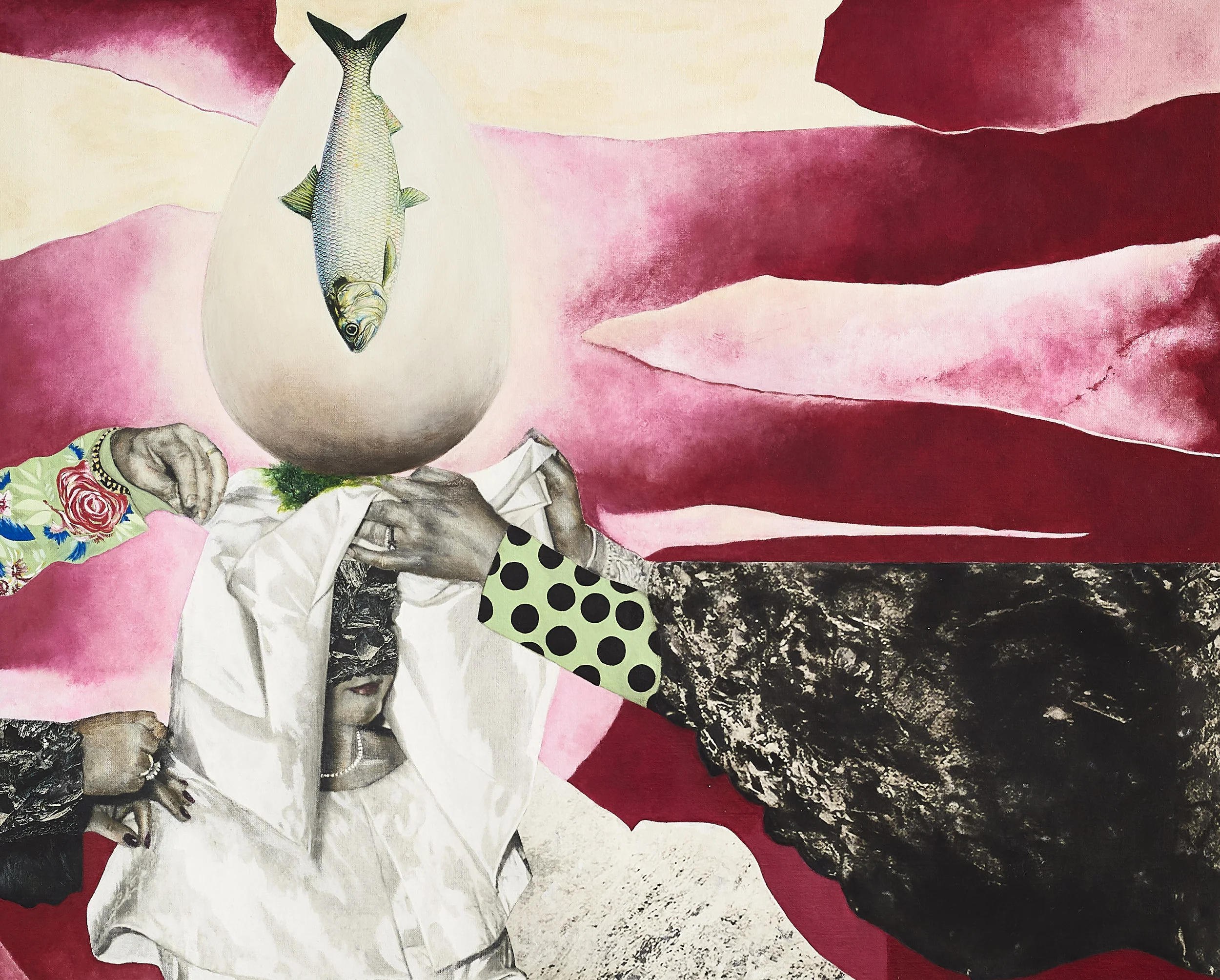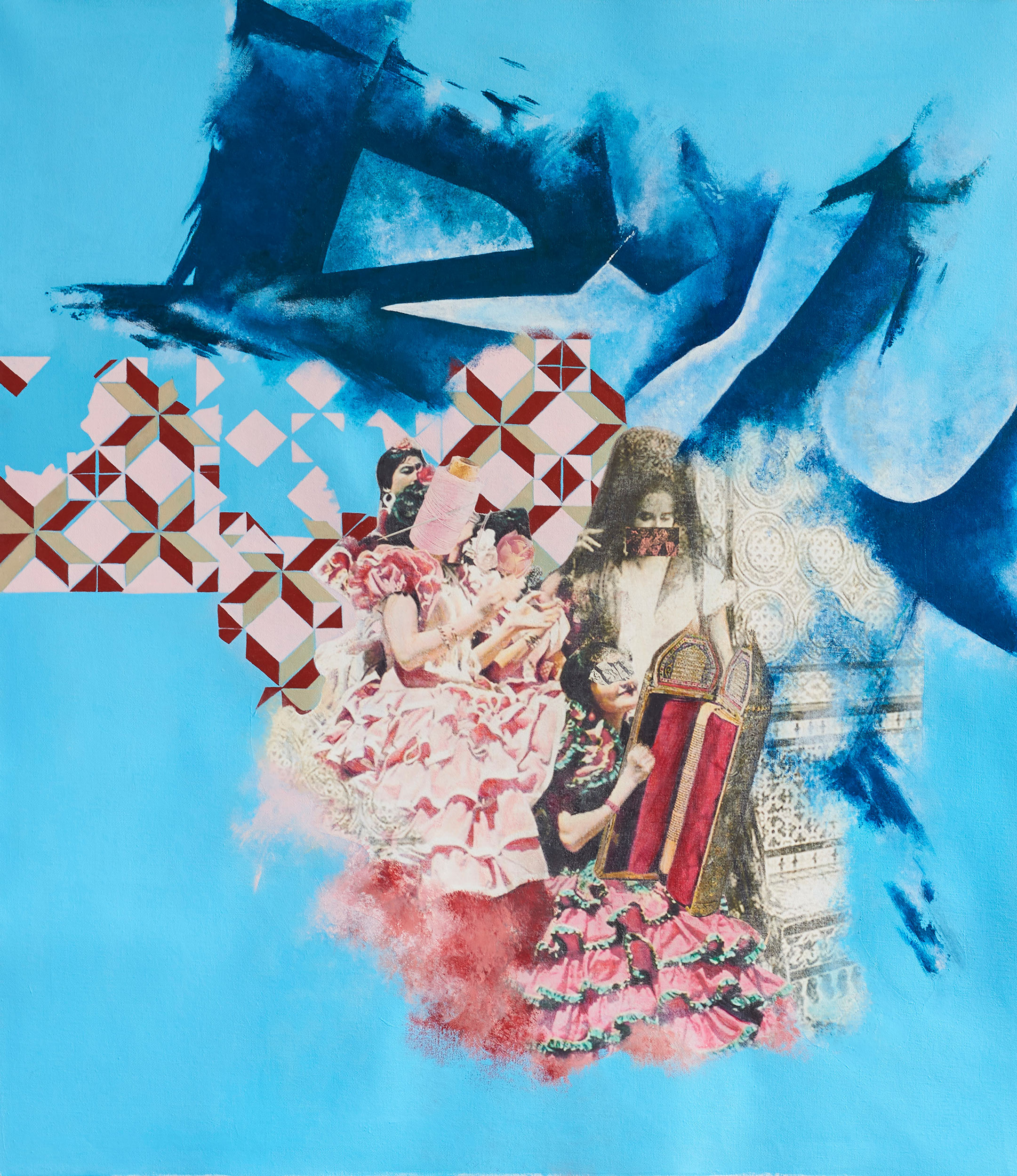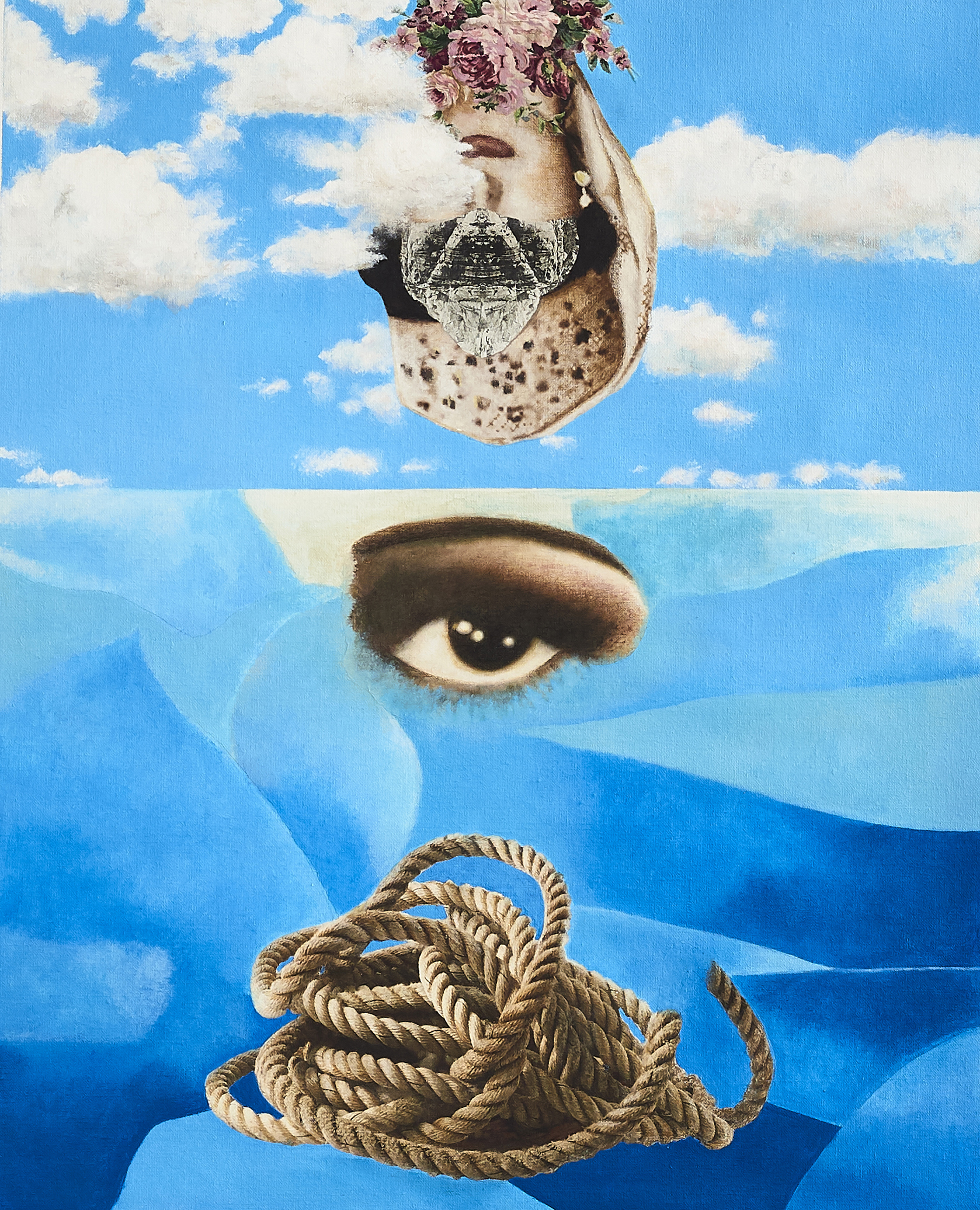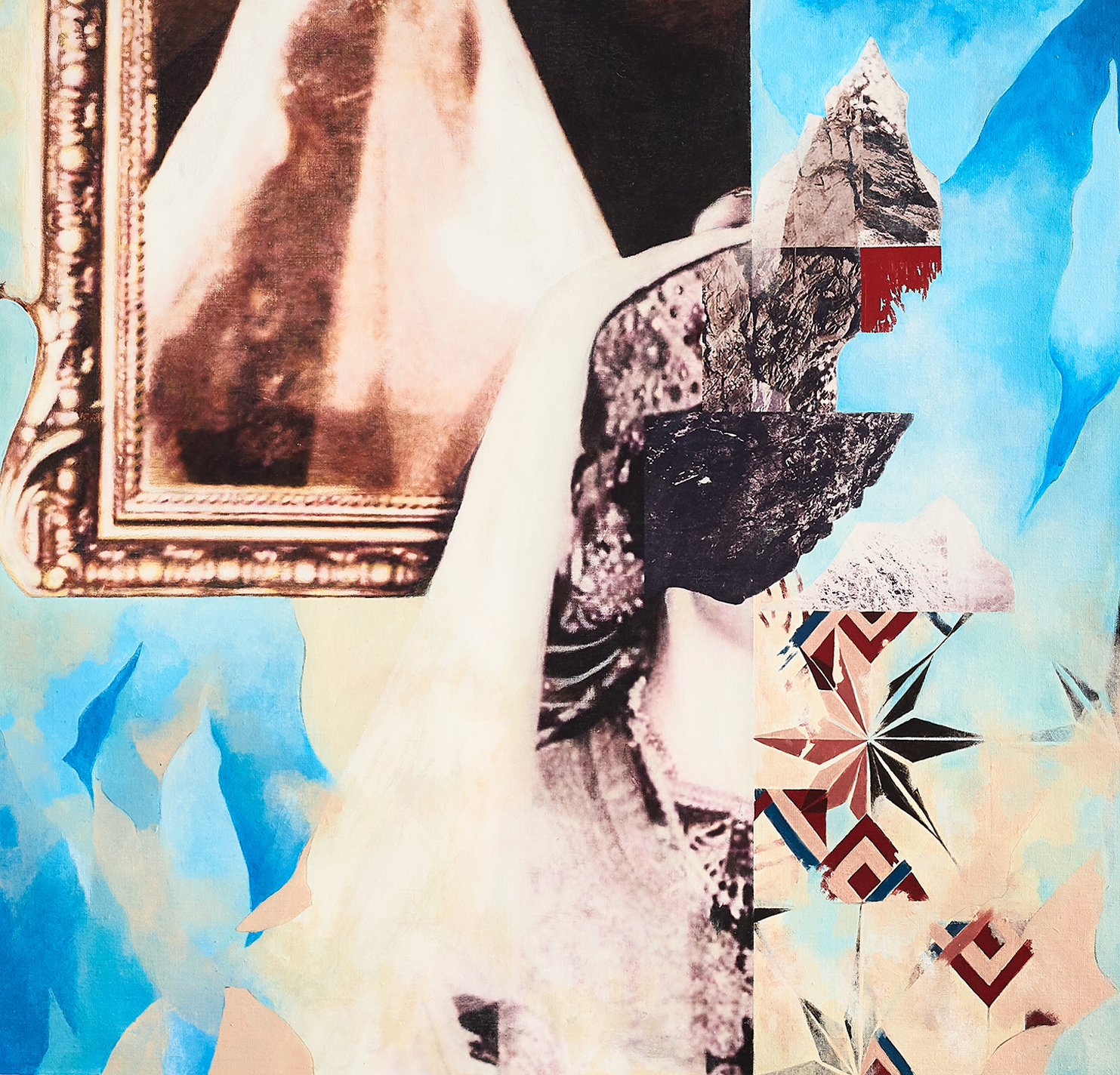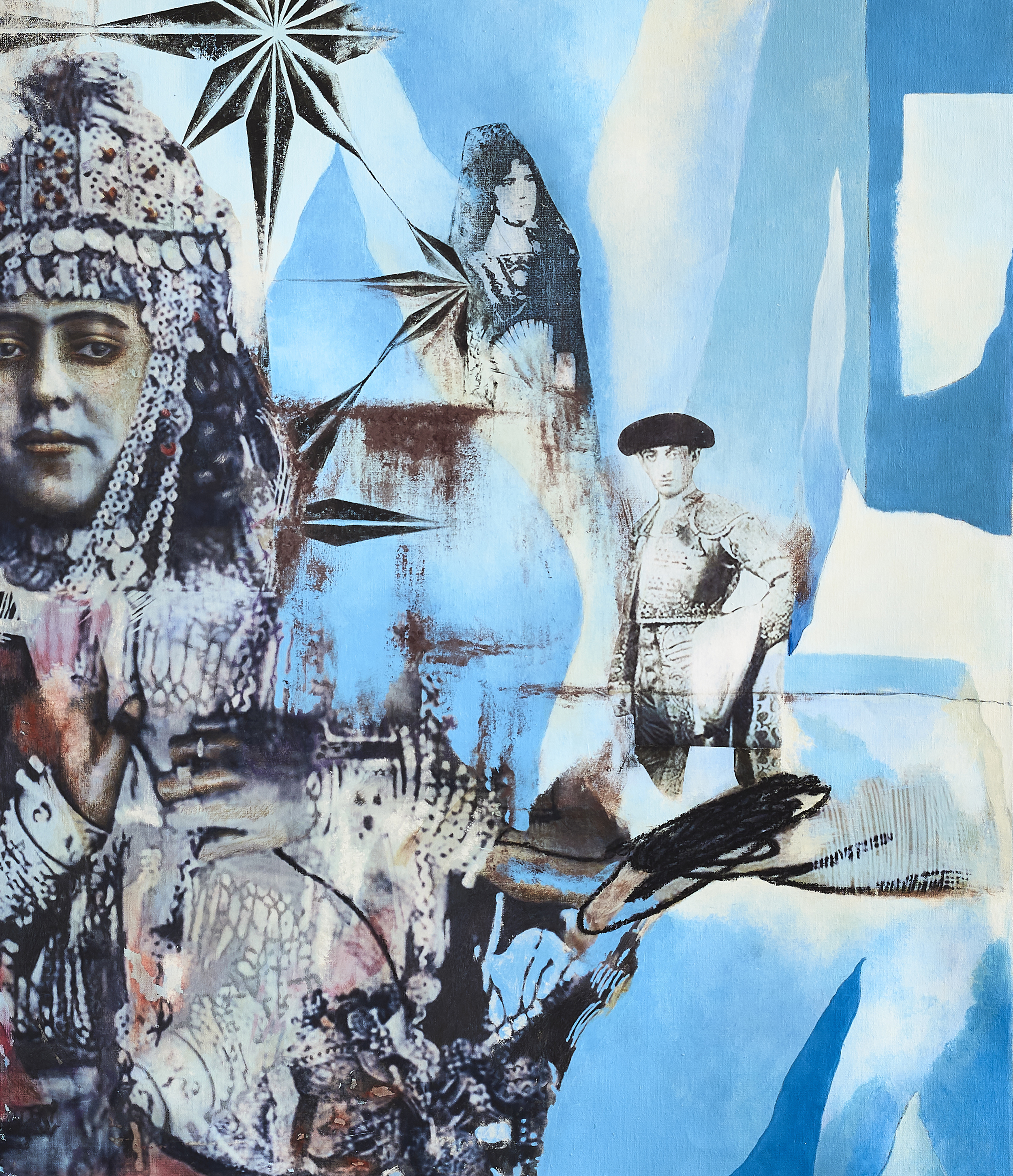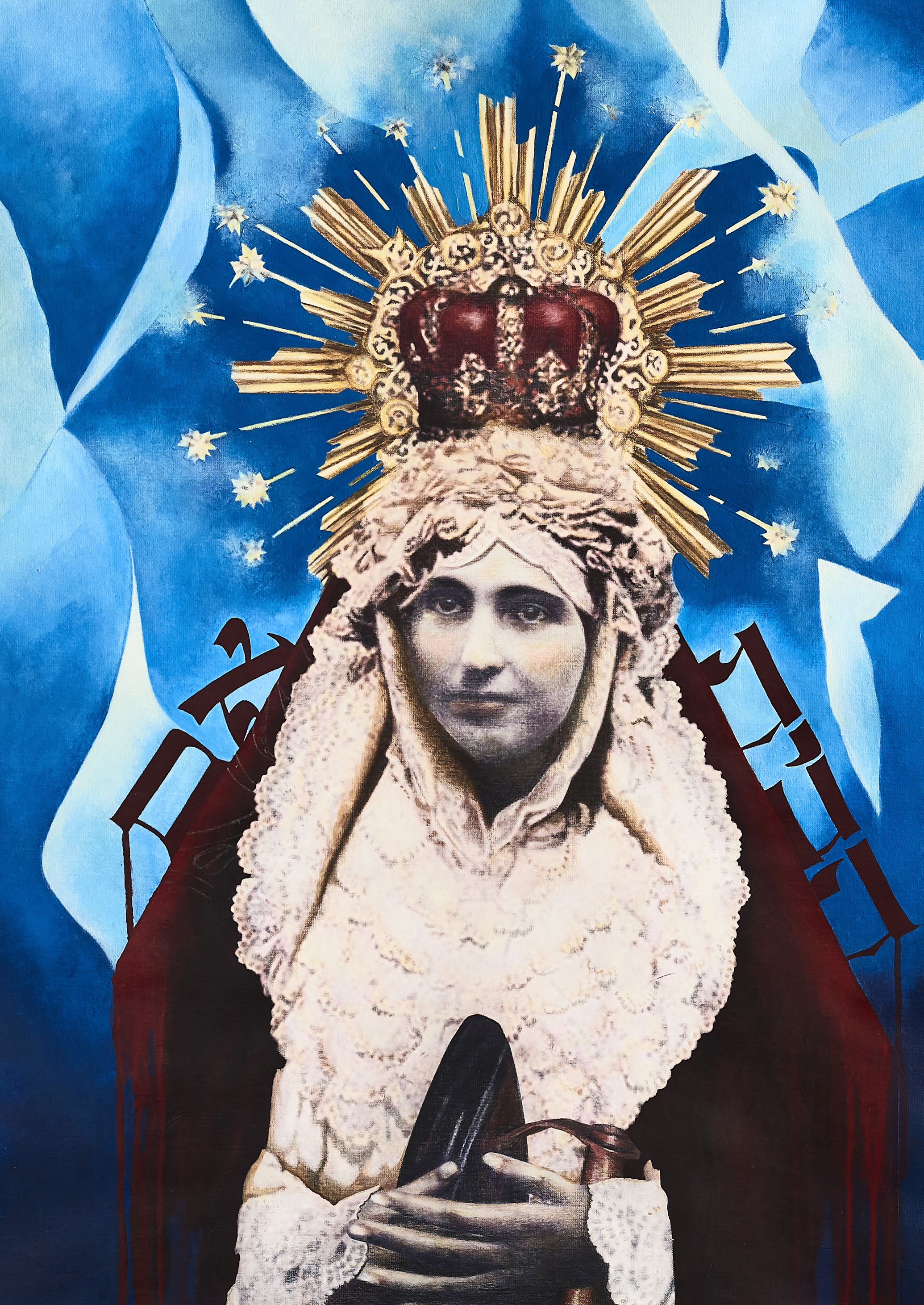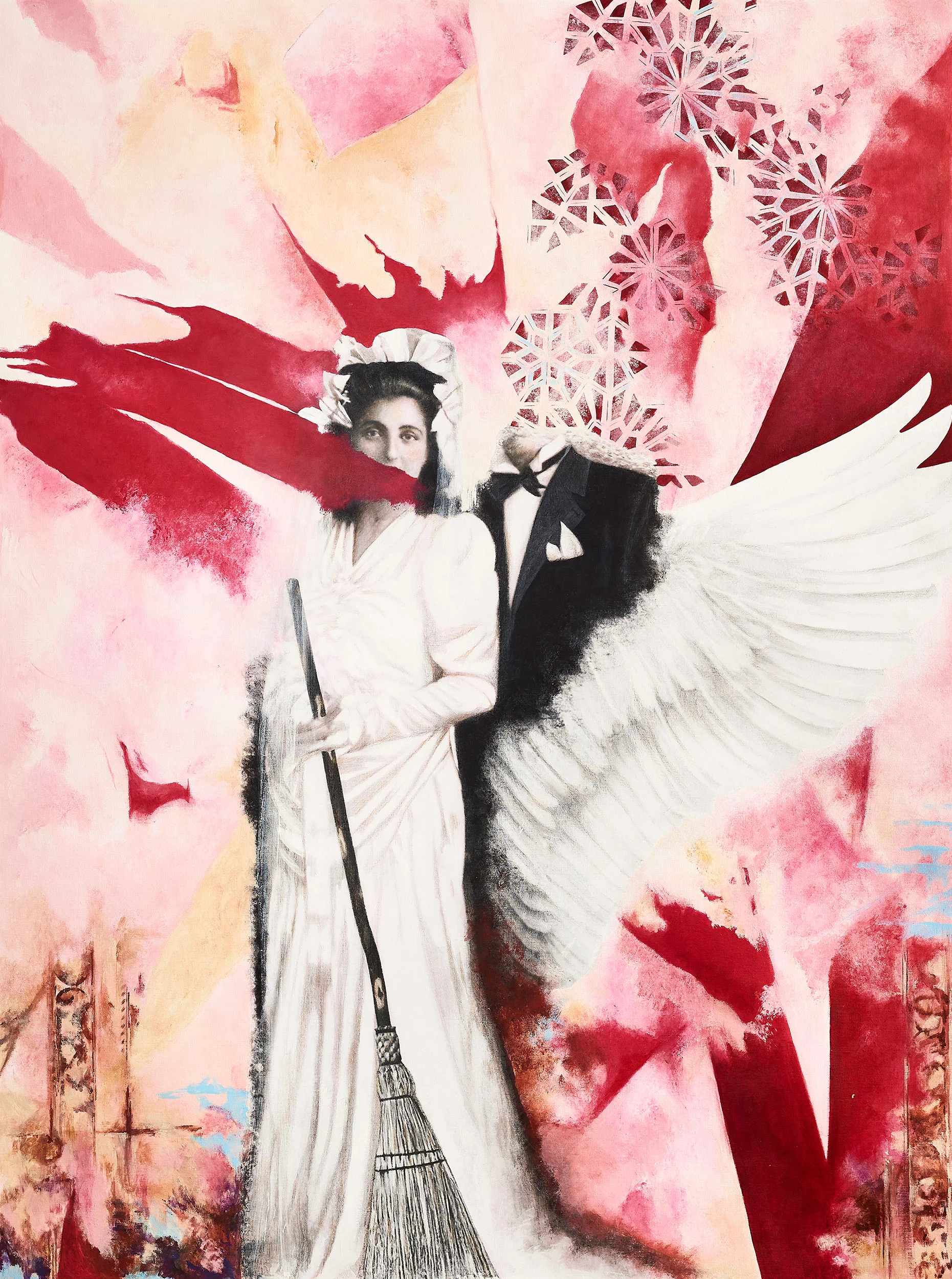Silent women; Mi mujer Sefardita 2018-2019
This series is a tribute to four generations of women living in silence, to what this way of life meant to these women, and to the endurance necessary to live in a culture where male chauvinism had been handed down for centuries.
The literal translation for my title is, My Spanish-Jewish woman. My mother and grandmother were born and raised in southern Spain, and my great grandmother in Morocco. The machismo present in both cultures runs deep and it was the stuff of everyday life for these women, inside and out of the home. The moment they were were born their lives were already preordained. Important to keeping the Jewish faith alive, marriage was arranged and carried out as soon as they were of age, after which they simply became property of their husbands. Personal ambitions and opinions were abandoned, and any movement outside the home was contingent on permission from male family members. Gender dictated activity, with the primary function being that of caretaker and of raising a family.
This isn’t a new theme. It’s the same leitmotif present wherever there is an authoritarian religion ruled by dogma. Yet, when it’s what you grow up with, it becomes real and personal. As a young girl I remember the stories my mother would tell about her childhood; how sad she thought it was that she was not allowed many “normal” activities like us, or to go anywhere apart from school, and how strict her father was with her but not with her brothers. I remember the old photos of my mother dressed up like a doll or a princess by her aunts, dressmakers at the time. They would take her out to display during local festivals or carnival in the streets, where on lookers could admire the designs of my aunts and the beauty of my young mother. After these events my mother remembered she would fall ill every time, and grew up believing it was the evil eye being cast upon her. I remember feeling frustrated trying to comprehend this constant obedience and obsession with doing the right thing and portraying an image of perfection that was only visible to (and only for the benefit of) those observing from afar. These stories had always resonated with me and are what inspired me to wrestle with portraying the irrationality of this patriarchal society.
My intention was to represent these women by depicting the strength and dignity they displayed daily, through customs, ceremonies, their own culture and the society they lived in. Using montages of antique family photos and mixing those with symbols, arranged collage elements, painting and drawing, I wanted to invoke the surreal aspect that their mundane lives took on, and the intricate laboriousness of life in the shadows, behind man´s absurd ideals of what a woman was.
Through these paintings I attempted for their voices to be heard, their presence to be felt, and the footprints their existence left behind to be acknowledged. I also wanted this series to serve as a reminder that male chauvinism still is pervasive in many cultures and religions, and as awareness that we as women have the ability to change these constructs starting in our homes and immediate environments.
